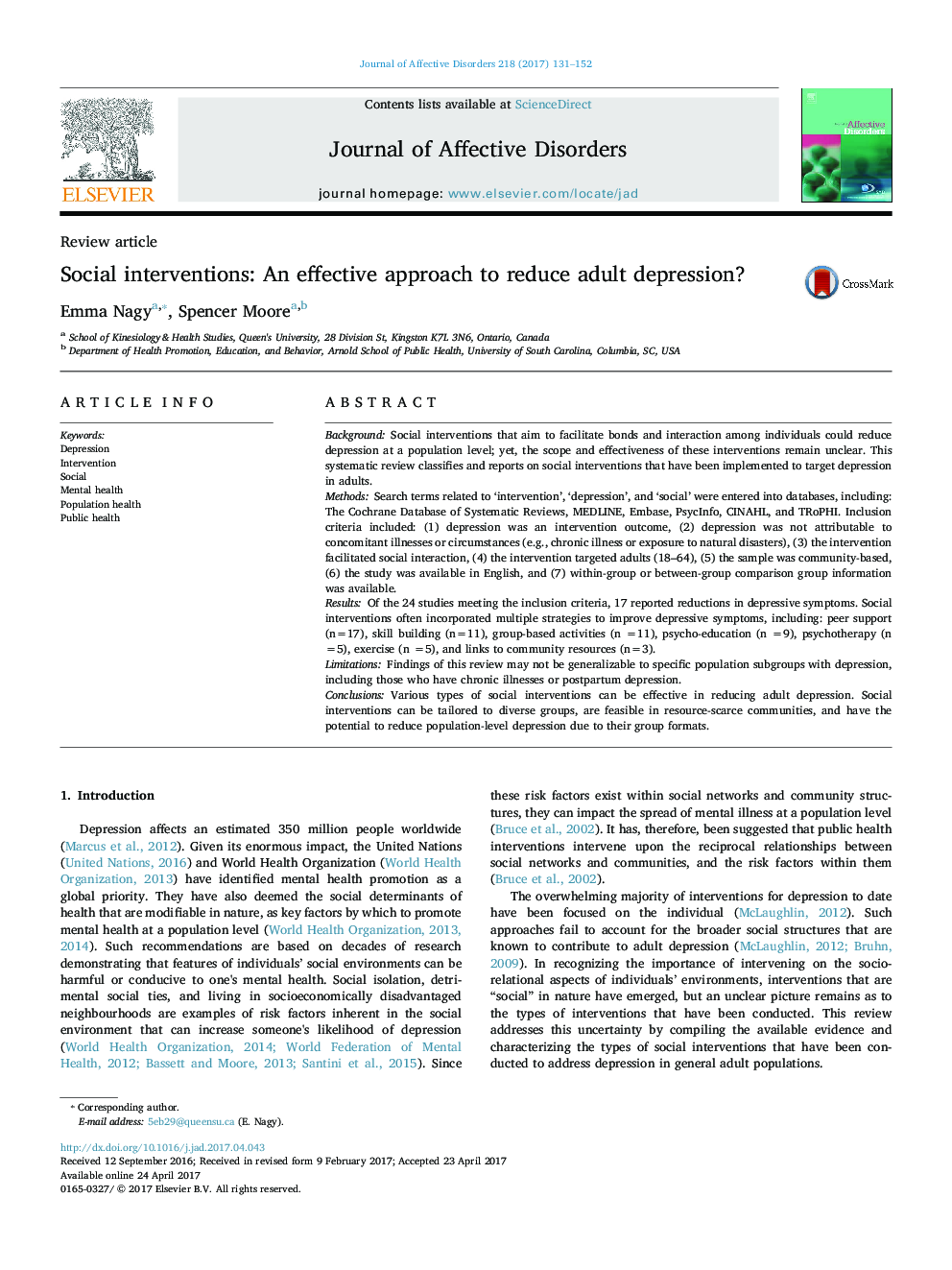| Article ID | Journal | Published Year | Pages | File Type |
|---|---|---|---|---|
| 5721941 | Journal of Affective Disorders | 2017 | 22 Pages |
â¢Seventeen of twenty four social interventions found reductions in depression.â¢Various types of social interventions can be effective in reducing adult depression.â¢Social interventions can be tailored to diverse and resource-scarce communities.
BackgroundSocial interventions that aim to facilitate bonds and interaction among individuals could reduce depression at a population level; yet, the scope and effectiveness of these interventions remain unclear. This systematic review classifies and reports on social interventions that have been implemented to target depression in adults.MethodsSearch terms related to 'intervention', 'depression', and 'social' were entered into databases, including: The Cochrane Database of Systematic Reviews, MEDLINE, Embase, PsycInfo, CINAHL, and TRoPHI. Inclusion criteria included: (1) depression was an intervention outcome, (2) depression was not attributable to concomitant illnesses or circumstances (e.g., chronic illness or exposure to natural disasters), (3) the intervention facilitated social interaction, (4) the intervention targeted adults (18-64), (5) the sample was community-based, (6) the study was available in English, and (7) within-group or between-group comparison group information was available.ResultsOf the 24 studies meeting the inclusion criteria, 17 reported reductions in depressive symptoms. Social interventions often incorporated multiple strategies to improve depressive symptoms, including: peer support (n=17), skill building (n=11), group-based activities (n =11), psycho-education (n =9), psychotherapy (n =5), exercise (n =5), and links to community resources (n=3).LimitationsFindings of this review may not be generalizable to specific population subgroups with depression, including those who have chronic illnesses or postpartum depression.ConclusionsVarious types of social interventions can be effective in reducing adult depression. Social interventions can be tailored to diverse groups, are feasible in resource-scarce communities, and have the potential to reduce population-level depression due to their group formats.
